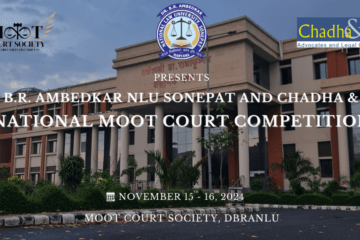
Introduction
The coverage of Supreme Court cases is often extensive in India, both in the media and the public imagination. However, High Courts, which are geographically closer to and, in many instances, directly affect rights and livelihoods of most people, do not receive the same level of attention.
This lack of scrutiny leaves a gap in understanding the justice system’s functioning at the state level. To address this gap, DAKSH proposes to curate essays that provide an in-depth analysis of the functioning of High Courts across India. The essays will cover topics relating to substantive law, the administration of High Courts, and the culture and practices of various High Courts. Authors can use data from DAKSH’s High Court dashboard for background and analysis.
DAKSH launched the Rule of Law Project in 2014 to evaluate judicial performance and study the problem of pendency in the Indian judicial system using a data-driven approach.
Since the institution of the Rule of Law Project, DAKSH has published four books, State of the Indian Judiciary, Approaches to Justice in India, Justice Frustrated and Constitutional Ideals which have shed light on the functioning of the Indian judiciary, analysed and reflect on access to justice in India, described the impact of court delays on Indian society and economy and examined the judiciary’s role in upholding constitutional values as an everyday norm.
DAKSH’s project seeks to fill a significant void in the public’s understanding of the Indian justice system. This publication will provide valuable insights to lawyers, policymakers, legal practitioners, and the general public by exploring the High Courts’ processes and decision-making styles and their impact on people’s lives.
Themes
Contributions to the upcoming publication could relate to any one or more of the following areas or others related to the broader theme of the work and working of High Courts across India.
- Role of chief justices and how to institutionalise their innovations, which can be institutionalised beyond their tenure
- Case flow and court management in High Courts- innovations, processes and changemaking techniques
- Appointment, transfer and elevation of High Court judges
- Important judgments and the role of High Courts in shaping law and justice system reforms in areas of law such as environmental law, personal law, and election law
- Delays and backlogs in High Courts
- Diversity in the higher judiciary
- Role of High Courts in reflecting changing gender norms / stereotypes (whether in their work or in their judgments)
- Role of High Courts with respect to tribunals
- Role of High Courts in the administration of justice
- Ethnographic accounts of culture and practices in High Courts
- Role of lawyers in shaping the culture of High Courts
Contributors
We would like to invite abstracts from interested contributors. Please send abstracts to books@dakshindia.org. While making your submission, please adhere to the following guidelines:
- The abstracts should be written in English, not exceeding 500 words
- The author’s name, title, and institutional affiliation, if applicable, should be included
- The author’s research question(s), data, the methodology used, and the main arguments and conclusions, should be outlined
We welcome submissions from scholars, policy analysts, legal practitioners, social scientists, and researchers with relevant interests, expertise, and experience.
After the abstracts are selected, the authors will be invited to submit complete essays, which will be published. Authors whose submissions are selected for publication will be paid an honorarium after submitting their essays.
The deadline for abstract submissions is 1st August 2024. Please write to books@dakshindia.org if you have any queries.

![UNITY POST GRADUATE COLLEGE LUCKNOW 9th JUSTICE MURTAZA HUSAIN MEMORIAL NATIONAL MOOT COURT COMPETITION, 2024, [NOV 22ND – 24TH; CASH PRIZES WORTH RS. 50K]: REGISTER BY 30TH OCTOBER, 2024](https://legalvidhiya.com/wp-content/uploads/2024/09/image-90-360x240.png)

![MANGALAYATAN UNIVERSITY JABALPUR, 1ST JUSTICE S.L. KOCHAR NATIONAL MOOT COURT COMPETITION, 2024 [NOV 16TH – 17TH; CASH PRIZES WORTH RS. 60K]: REGISTER BY 30TH OCTOBER, 2024](https://legalvidhiya.com/wp-content/uploads/2024/09/image-82-360x240.png)
0 Comments